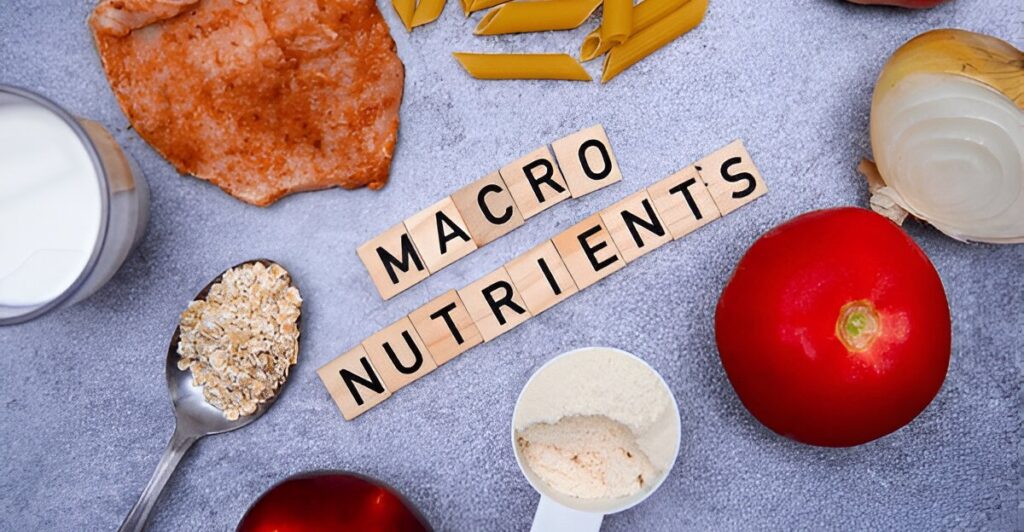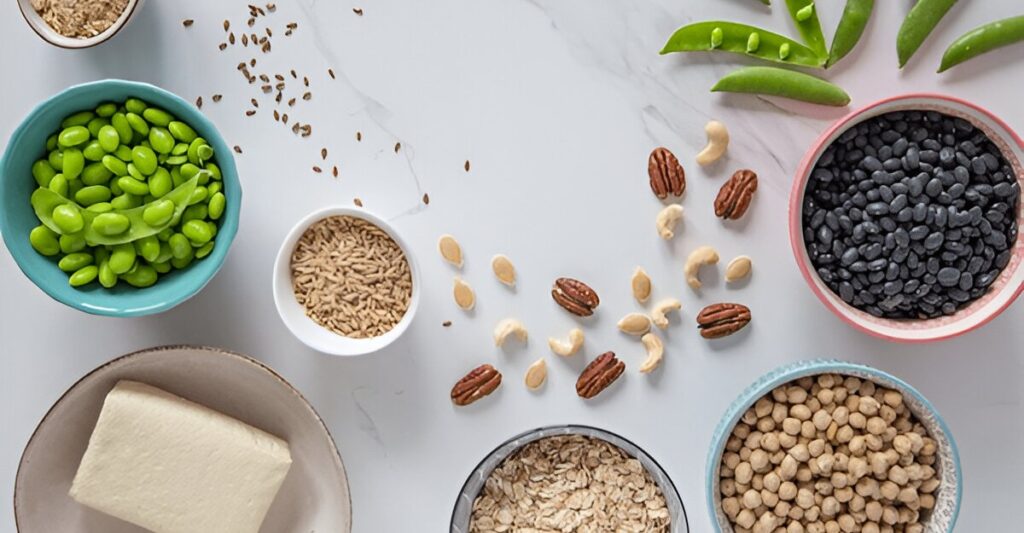Stress is a common part of modern life, but its impact on your body goes far beyond mental strain. From altering your eating habits to disrupting digestion, stress can significantly affect how your body processes and absorbs nutrients. Understanding how stress affects nutrition and digestion is key to maintaining optimal health. In this article, we’ll explore the science behind these effects and share practical strategies to mitigate them.
The Science: How Stress Impacts Your Body
When you’re stressed, your body activates the “fight or flight” response, releasing hormones like cortisol and adrenaline. While this response is designed to help you handle immediate threats, chronic stress keeps these hormones elevated, affecting multiple systems, including digestion and nutrition.
Here’s how stress influences your body:
- Altered Appetite: Stress can suppress or increase hunger by affecting hormones like ghrelin (which stimulates appetite) and leptin (which signals fullness).
- Digestive Slowdown: Stress diverts blood flow away from the digestive system to muscles, slowing digestion and nutrient absorption.
- Gut-Brain Connection: The gut and brain communicate via the vagus nerve. Stress disrupts this connection, leading to digestive issues and poor nutrient uptake.
These effects can create a cycle where poor nutrition worsens stress, and stress further impairs nutrition.
How Stress Affects Nutrition
Stress can change your eating habits and nutrient absorption in several ways:
1. Cravings for Unhealthy Foods
Under stress, many people crave high-sugar, high-fat comfort foods like chips, sweets, or fast food. These foods provide a temporary dopamine boost but lack essential nutrients, leading to energy crashes and nutrient deficiencies. Chronic stress also raises cortisol, which may increase appetite and drive cravings for calorie-dense foods.
2. Nutrient Depletion
Stress increases the body’s demand for certain nutrients, such as:
- Vitamin C: Used to produce stress hormones, depleting stores and weakening immunity.
- B Vitamins: Essential for energy production and nervous system health, B vitamins are quickly used up during stress.
- Magnesium: Stress reduces magnesium levels, which can worsen anxiety and impair muscle function.
Poor nutrient absorption due to stress can exacerbate these deficiencies, leaving you fatigued and less resilient.
3. Skipping Meals or Overeating
Stress can disrupt regular eating patterns. Some people skip meals due to a suppressed appetite, missing out on vital nutrients. Others may overeat as a coping mechanism, leading to weight gain and digestive strain. Both extremes hinder balanced nutrition.
How Stress Affects Digestion
The digestive system is highly sensitive to stress, and chronic stress can lead to a range of issues:
1. Slowed Digestion
During stress, the body prioritizes survival over digestion, reducing stomach acid and enzyme production. This slows the breakdown of food, impairing nutrient absorption and causing symptoms like bloating, indigestion, or acid reflux.
2. Gut Motility Issues
Stress can speed up or slow down gut motility, leading to:
- Diarrhea: Acute stress may accelerate intestinal contractions.
- Constipation: Chronic stress can slow gut movement, causing discomfort.
These changes disrupt the gut microbiome, which plays a crucial role in digestion and nutrient absorption.
3. Increased Gut Permeability
Chronic stress may contribute to “leaky gut,” where the intestinal lining becomes more permeable, allowing undigested food particles and toxins to enter the bloodstream. This can trigger inflammation, food sensitivities, and poor nutrient uptake.
4. Exacerbation of Digestive Disorders
Stress can worsen conditions like irritable bowel syndrome (IBS), inflammatory bowel disease (IBD), or gastritis. Symptoms such as abdominal pain, cramping, and irregular bowel movements often intensify during stressful periods.
Common Symptoms of Stress-Related Nutrition and Digestion Issues
If stress is affecting your nutrition and digestion, you may notice:
- Bloating, gas, or indigestion after meals
- Unexplained weight gain or loss
- Fatigue or low energy despite eating
- Frequent cravings for sugary or fatty foods
- Irregular bowel movements (diarrhea or constipation)
- Difficulty concentrating or mood swings
Recognizing these signs can help you take action to break the stress-nutrition cycle.
Strategies to Mitigate Stress and Support Nutrition and Digestion
To counteract how stress affects nutrition and digestion, adopt these practical strategies:
1. Eat Nutrient-Dense Foods
Focus on foods rich in nutrients that support stress resilience and digestion:
- Vitamin C: Citrus fruits, bell peppers, strawberries.
- B Vitamins: Whole grains, eggs, leafy greens.
- Magnesium: Nuts, seeds, spinach, dark chocolate.
- Fiber: Vegetables, fruits, legumes, and whole grains to support gut health.
A balanced diet helps replenish nutrients depleted by stress and promotes healthy digestion.
2. Practice Mindful Eating
Stress often leads to mindless eating or rushed meals, which can impair digestion. Try these mindful eating habits:
- Chew food thoroughly to aid digestion.
- Eat in a calm environment, free from distractions like phones or work.
- Take small bites and savor flavors to enhance nutrient absorption.
3. Prioritize Regular Meals
Stick to a consistent eating schedule to stabilize blood sugar and reduce stress on the digestive system. Aim for three balanced meals or smaller, frequent meals every 3–4 hours, including protein, healthy fats, and complex carbs.
4. Support Gut Health
A healthy gut improves digestion and nutrient absorption. Incorporate:
- Probiotics: Yogurt, kefir, sauerkraut, or supplements to support gut bacteria.
- Prebiotics: Bananas, onions, garlic, and asparagus to feed beneficial bacteria.
- Hydration: Drink 8–10 cups of water daily to aid digestion and prevent constipation.
5. Manage Stress Effectively
Reducing stress directly improves nutrition and digestion. Try these techniques:
- Meditation or Deep Breathing: Even 5 minutes daily can lower cortisol levels.
- Exercise: Activities like yoga, walking, or strength training reduce stress and boost gut motility.
- Sleep: Aim for 7–9 hours of quality sleep to regulate stress hormones and support digestion.
6. Limit Stress-Triggering Foods
Certain foods can exacerbate stress-related digestive issues. Reduce or avoid:
- Caffeine: Excess coffee or energy drinks can overstimulate the nervous system.
- Sugary Foods: These cause blood sugar spikes and crashes, worsening stress.
- Processed Foods: High in additives, they can irritate the gut.
7. Seek Professional Support
If stress-related nutrition or digestion issues persist, consult:
- A Dietitian: To create a personalized nutrition plan.
- A Therapist: To address chronic stress or anxiety.
- A Gastroenterologist: For persistent digestive symptoms or conditions like IBS.
Who Can Benefit from These Strategies?
Anyone experiencing stress can benefit from these tips, especially:
- Individuals with high-pressure jobs or busy lifestyles.
- Those with digestive issues like IBS, bloating, or acid reflux.
- People noticing fatigue, cravings, or irregular eating patterns.
If you have underlying health conditions, consult a healthcare provider before making significant dietary changes.
Conclusion: Break the Stress-Nutrition Cycle
Understanding how stress affects nutrition and digestion empowers you to take control of your health. Chronic stress can disrupt eating habits, deplete nutrients, and impair digestion, creating a vicious cycle. By prioritizing nutrient-dense foods, practicing mindful eating, supporting gut health, and managing stress, you can restore balance and feel your best.
Ready to start? Begin with one small change, like adding a magnesium-rich food to your diet or practicing deep breathing before meals. With consistent effort, you’ll improve your nutrition, digestion, and overall resilience to stress.


